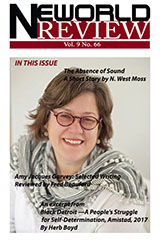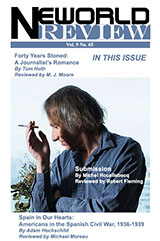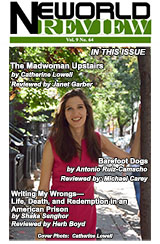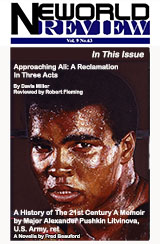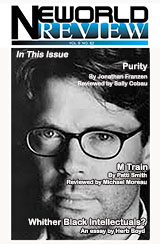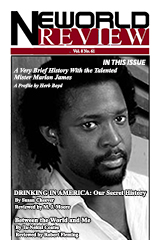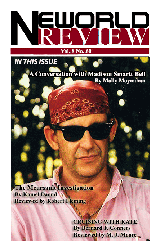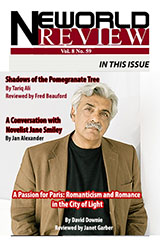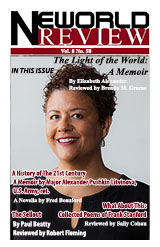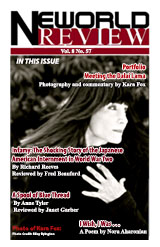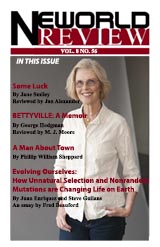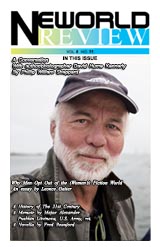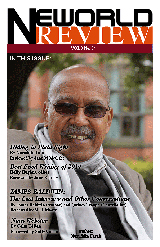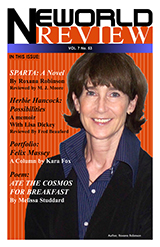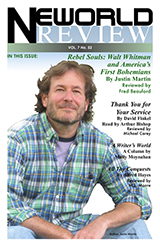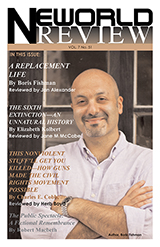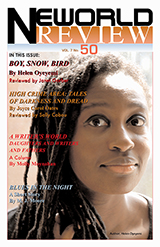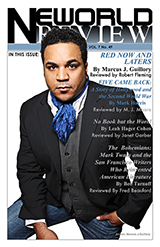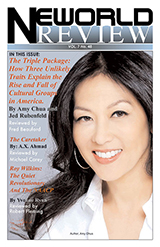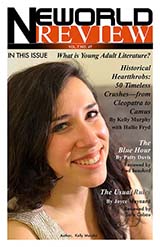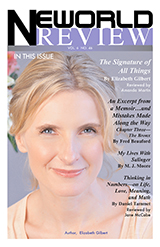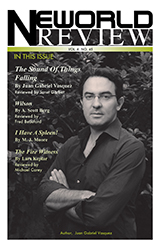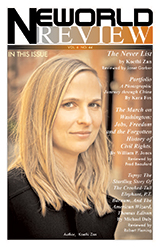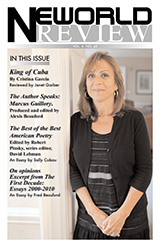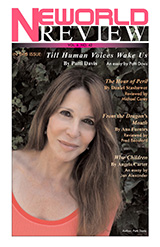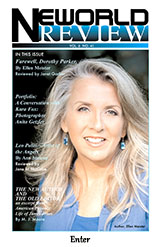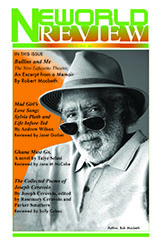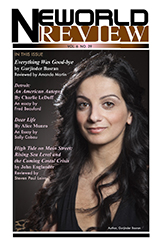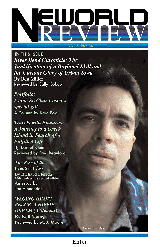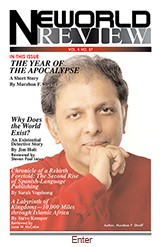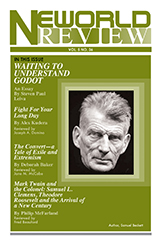
Letter to the Reader:
A Blink of an Eye
President, or should I say, former President, Barack Obama said recently that his time in the White House was, “only a blink in time.”
I can relate. When the next issue of Neworld Review comes out, it will be in our tenth year as a publication, with seven of those years online ̶ just a blink of an eye.
***
As I write this, I have no idea who will take Obama’s place. By all logic, it should be Hillary, but too much hubris may just be her undoing.
And the Donald, fellow New Yorker that he is, is someone I know quite well, growing up in the Bronx, while he grew up in Queens. We hard-core thugs from the Bronx, and proud of it, I might add, used to chase guys like Trump back to Queens if we caught them in Times Square.
This is the first time in my lifetime that we faced such strange, deeply flawed candidates, especially after the cool, dapper, well spoken, Obama.
For some reason, I sense a, “Bring back Obama” movement sometimes in the near future. Who knows? But, one thing for sure, whatever shortcomings Obama has, he’s one cool cat.
***
So, we at the Neworld Review are going into our tenth year, and have outlived two presidents, and are forging into new territory, just as our country is also about to undergo a profound change.
Let’s hope for the best for our wonderful country, and, the mighty Neworld Review, always keeping an eye on things.Thank you for your continued support.
Fred Beauford
Editor-in-Chief
Publisher

At an out-of-control medical center in NYC, HR manager, Melie, pleads feverishly with buttock-groping doctors and their flaky staff to just get along. But then there's a little murder, a cancer, a handsome devil and his evil parrot, a knife-wielding cook. She's not quitting until she has it all sorted out —the hunk, the macaw, her life work—and neither will you!
This Month's Articles
REVIEWING
The Rose Hotel—a Memoir of Secrets, Loss, and Love from Iran to America
By Rahimeh Andalibian
Reviewed by Jane M McCabe
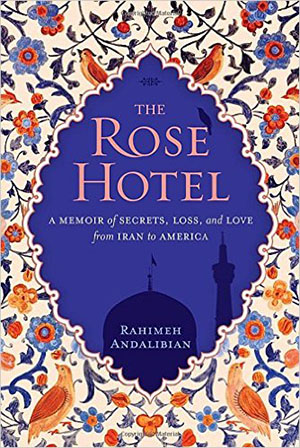
Long has been my interest in all the countries of the Middle East, and slim now is my chance to visit; but nothing short of going blind can keep me from reading about them. Among them Iran holds a special place—the land of the ancient Persians, Cyrus the Great, kings with exotic names—Cambyses, Darius, Artaxerxes.
In the 4th Century BC, Persia was conquered by Alexander the Great. The religion that held sway in Persia was Zoroastrianism, until it was conquered by the Muslims in the 7th Century AD and became Islamic. Most Persians today are Shiite Muslims. The Persians are known to be a people of delicate artistic ability, as shown in their miniatures and rugs, a great love of foods like pomegranates, honeyed pastries, nuts and spices, and a regal bearing, reminiscent of their heritage.
In recent times, in 1979, the Shah was deposed and the exiled Khomeini returned and set up a conservative Islamic government, ruled mostly by the mullahs. In the 1980s, provoked by Saddam Hussein, Iran went to war against Iraq, a war that cost Iran thousands of its young men. Americans will recall the American hostage situation in 1980, which dragged out for over 300 days before our people were finally rescued. The relationship between Iran and the United States has since been, at best, tenuous.
I live in Los Angeles, and so I’m aware that there’s a large community of Iranians living here. Most of stores in the fabric district are owned and operated by Jewish Iranians. This elicits my curiosity. Why have so many Iranians immigrated here in recent years?
For this reason, I checked out from the magnificent, downtown Los Angeles public library and read The Rose Hotel by Rahimeh Andalibian.
Reading it was an eye opener. For one, Ms. Andalibian was born into such a well-to-do family that during the time when the Shah still....Read More

NOVELLA
A History of The 21st Century
A Memoir By Major Alexander Pushkin Litvinova, U.S. Army, ret.
A Novella by Fred Beauford
Chapter 12
“Meanwhile, Father, I told you that this letter was going to jump all over the place, but back to the beach in Brighton Beach. This young person was actually talking to me, as if she was some kind of friend. I usually look the other way when people talk to me, like most of us with the Manhattan Syndrome. We just didn’t want anyone to get that close to us anymore or invade our private space in any way.
But I looked closely at the young lady. I was sitting on a bench facing the gray ocean, freezing my black Russian ass off! What the fuck I was doing out here in this so-called spring weather is beyond me. But a routine is a routine.
Just like I use to hang out almost every other evening in one of my clubs before the Big Bang, I now sit on a bench in Brighton Beach almost everyday, weather permitting, as part of the routine I have worked out over the years. I sometimes walk the beach, doing my talking to you, Mother, and my old friends. But, sometimes my head is totally empty, with only occasional snatches of old songs, which I hum over and over.
It was that rare day of pure emptiness that I most desired.
I have had two other so-called doctors and numerous caregivers since Dr. Anderson gave up on me and moved back to Chicago. Maybe she was right. She told me just before she left that I just didn’t want any help. I just wanted to spend the rest of my life wallowing in my grief and lost.
But, this was one of those rare days of pure emptiness. Not a thought of caregivers or doctors. Maybe that’s why I was so surprised, even startled by her. Who was this person mentioning Mother’s name, and seeming to know who I was? What was this, Father?
The young woman had a youthful, open face. It was hard to tell, but she looked to be in her late twenties. She wore a black knit cap pulled down around her ears, with strands of blond hair escaping from beneath it.
I could see that she wasn’t beautiful like Mother. In fact, she was rather plain looking. She had the same small blue eyes, but her lips weren’t large, and well shaped like Mother’s. But, she had such a bright, lively, intelligent, happy look on her face. It was a face that showed no fear whatsoever.
Her face also had that oval, Slavic feature which I immediately recognized. I would bet anything she was a full-blooded Russian.
“How do you know who I am?” I asked. I looked at her and quickly looked away.
“I see you all the time. See,” she said, turning....Read More

REVIEWING
Vampire in Love; stories by Enrique Vila-Matas
By Enrique Vila-Matas
Translated from the Spanish by Margaret Jull Costa
Reviewed by Jan Alexander
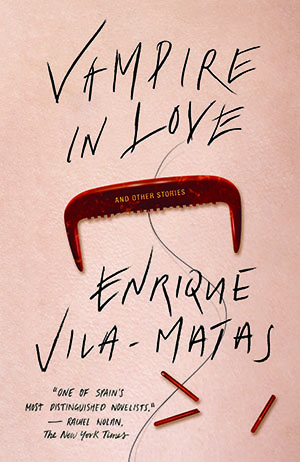
Summon all Six Senses
An outdoor café is an ideal setting to read Enrique Vila-Matas’ stories; you can imagine the writer himself happening by and making you a character in the untranslatable sound-and-light show that must run through his head. The café where I began reading Vampire in Love was in New York’s Hudson Valley, and a chalkboard sign beckoned customers by asking, “Do you need more coffee? Do you hear colors? Switch to decaf.”
Or, keep pouring down the caffeine, and maybe you’ll begin to understand the gauzy boundaries between the senses in this amazing Spanish Catalan writer’s paean-to-post-Modernism and myriad literary-greats, a melding-of-genres meta-fiction. Vila-Matas, born in Barcelona in 1948, has written 20-some odd novels and has collected at least a dozen international literary prizes over the course of his career, but only in the past decade has his work begun to appear in English, largely through the efforts of New Directions Publishing.
The truth is, I didn’t read Vampire in Love in the café. I just passed the sign and thought I should be reading it. Then I noticed a man who looked a lot like Vila-Matas walking by. I followed him around a corner—until he turned and admonished, “I’m just impersonating the author.”
That’s what it’s like to read Vila-Matas. A narrator who is the author often follows a character to chase down that person’s story, and the narrator gets cagey about who he is and what is really happened. In playing the narrator he seems ever conscious of the mantle he’s borrowed from others, notably Jorge Luis Borges, who blurred genre boundaries and deployed elaborate literary hoaxes to interrogate literature as we knew it, and Roberto Bolaño, who idolized Borges and used detective characters to cast a jaded eye on the literary world. Vila-Matas often has someone spying on his characters, including the narrator/author and is aware that his presence will upend them.
“I am a pursuer of other people’s lives, a kind of lazy detective, a storyteller,” one such narrator explains in “The Hour of the Tired and Weary,” a story in which the color palette is all vivid, film-noirish shades of gray that seep into your bones like damp weather. Vila-Matas describes the time of day, twilight, as “the crepuscular hour when even the shadows grow weary.” Indeed, while his characters consume a lot of coffee, and a lot of whiskey and amphetamines, what fuels them more than substances is a kind of synesthesia. That is, his stories are full of a neurological phenomenon in which stimulation of one sensory pathway leads to involuntary experiences in a second pathway. Life and art wind together in a crepuscular way, as do life and death.
Take the story “Rosa Schwarzer Comes Back to Life,” about a 50-year-old Dusseldorf museum guard whose very name walks the line between a painting she calls “Monsieur Pink” and....Read More

REVIEWING
Bind Us Apart: How Enlightened Americans Invented Racial Segregation
By Nicholas Guyatt
Reviewed by Robert Fleming
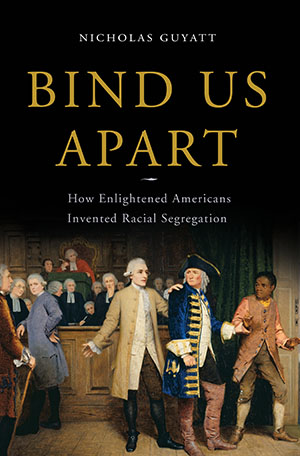
In light of the current political climate, the search is on for the origins of prejudice and racial segregation in the history of our republic. Where does this blight come from in our American democracy? Does the concept of Jim Crow hold the answer for the need for white privilege and entitlement? Can the rationale and reason for black oppression be explained in the notion of “separate but equal?”
The separation of the races, Nicholas Guyatt suggests in his astonishing book, Bind Us Apart, didn’t start with the Civil War or the cotton economy. He moves us back to the Founding Fathers, those liberal reformers and their dissent against the British Crown, and their thirst for religious freedom and their cry against taxation without representation.
Needless to say, the authors of the Declaration of Independence and the Bill of Rights embraced equality but with one drawback: that of granting basic freedoms to the Native Americans and African-Americans. Although Thomas Jefferson, as president, had signed a bill banning the country’s active participation in international slave trade, he still owned slaves on Monticello and saw integration as not the solution of bondage of the dark men and women. Some of his peers thought the slaves should be freed and taken to the wilderness of the western states, but Jefferson put off any action on the problem, saying antislavery was “an enterprise for the young.”
Whereas Jefferson’s notion of “all men are created equal” disturbed the framers, the idea of ending human chattel evaporated in a mist against the practical solution of abolition. The whites feared what a liberated mass of blacks could do. Would anyone be safe? Would they remember the past injustices suffered by them? Slavery was the cruel barrier that held....Read More

SHORT STORY
A Story about My Father, Whom I Never Met
(for Michael Olsen)
By James M. Hilgartner
Not all of the people who contributed to my reconstruction of my father’s story were aware they were doing so. All, however, have my thanks for their help.
My mother had gone to see her sister in Vermont, a visit she'd been planning long before she got the news, and my father, though he missed her, thought he'd do a little quiet celebrating on his own. He cleaned his rollers and brushes, gathered up his dropcloths, and stowed everything in the van. He'd have a beer or two on the way home, maybe hit the Square later and catch a movie. Perhaps in the morning he'd go down to the kung fu school, apologize to Sifu for staying away so long, and train for a couple of hours.
He got behind the wheel and checked his mirrors. He took a copy of my mother's sonogram--their first picture of me--from the seat beside him, folded it, and put it in his pocket. It was early yet, the gray winter hour after the streetlights come on but before the stars come out. Sully's Place would still be pretty dead. My father drove up Mass Ave toward Harvard Square, passed the bar, and turned onto a snow-choked, narrow side street. He found a parking space on the left and took it slow, leaning forward to get a better view in the wing mirror, feeling his way with the tires against the curb. He'd been blind in his left eye for about two years: a prefab window had shattered as he wrestled it into place. Of course, he had learned to compensate, and while my mother worried about his driving, [I never interviewed my mother for this project, but I did grow up with her.] my father worried more about the Registry of Motor Vehicles, to which he had neglected to report his infirmity.
The place was more crowded than my father had expected. Several of the tables and booths were taken, and people stood scattered the length of the bar. Among them, toward the back of the room, my father noted the shabby figure of the Norton Poet. [When I interviewed Mr. Sullivan, he remembered the Norton Poet fondly, though he declined to reveal his given name. The Norton Poet died of exposure, apparently, not long after the episode related here. My father was known to Mr. Sullivan by his surname, Edgerton. The surname listed on my birth certificate is Wheeler, my mother’s name, which she kept when she married my father.] He'd have to remember not to leave his money on the bartop beside his drink.
My father draped his coat over the back of a barstool and stood beside it, one foot up on the brass footrail. Sully's Place had been a bar....Read More

MEMOIR
Consequence - A Memoir
By Eric Fair
Reviewed by Emily Rosen
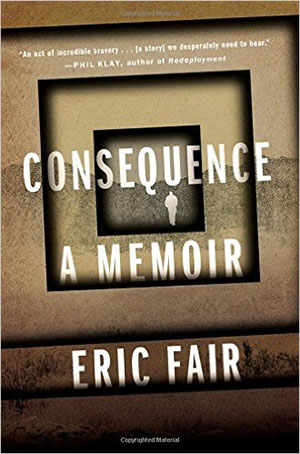
I had visions of the snarling Jack Nickolson spewing out his classic, “You can’t handle the truth,” to hard-driving, well-meaning prosecuting attorney Tom Cruise, as I listened to disk after truth-telling disk recording a tale that literally turned my stomach. I wasn’t sure if I could “handle it” –even on so remote a level. But I listened as a kind of atonement for living my easy life, and my no-risk “support” of our servicemen and auxiliary personnel who endured unspeakable life changing traumas.
I listened as the process of PTSD (Post Traumatic Stress Disorder) unfolded layer by layer inviting the audience to become witness to the evolution of a human being. I listened to the crisp, clipped, truncated, staccato-like word-bullets that were transferred from page to disk projecting “just the facts,” – (read by the author) because the feelings, the raw emotions ̶ had to be snuffed out and dismissed.
Eric Fair was a civilian interrogator at Abu Ghraib Prison in Iraq and in Fallujah. He wound up there having been rejected by the military because of a heart condition, and rejected, also, by the Seminary School at Princeton for reasons not quite clear. The contrast between his inner being and the type of “work-person” seemingly required for his job is the grisly tale of this book.
Having enlisted in the Army in 1995, he fortuitously discovered an Arab Language program which eventually gave him the rare expertise that was in such demand in Iraq. His Presbyterian/Military family background growing up in depressed-era Bethlehem, Pennsylvania gave impetus to his semi-conflicted, unfulfilled dream of becoming either a Police Officer or a Pastor.
This is a glorified “confessional” from a deeply religious individual who was a participant in one of the most dehumanizing torture events in the history of our country, and an indictment of the “system” that not only allowed it to take place, but encouraged it, and refused to apologize for it, rationalizing it merely as justification during warfare.
In 2004, Fair was an employee of CACI, a private contractor supplying interrogation services at the prison. He describes the prison atmosphere as chaotic and disorganized with insufficient personnel and supplies. But, nonetheless, Fair participated in and witnessed sub-human physical abuse to prisoners and in many cases innocent detainees ̶ acts that he describes so graphically as to....Read More

REVIEWING
BELOW AVERAGE: A Life Way Under the Bar
By Lianne Stokes
Reviewed by M. J. Moore
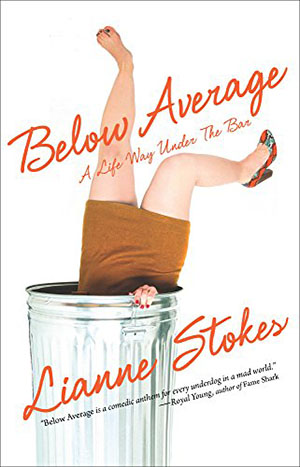
Ask yourself this: How many books have you read that are laugh-out-loud funny?
If anyone asked me that question, I’d immediately cite J. D. Salinger’s Catcher in the Rye (which is funny and heartrending at the same time), and quickly I’d add Joseph Heller’s Catch-22. But soon enough, I’d falter. Right off the bat, I cannot think of one dozen laugh-out-loud funny books. It seems to me that there’s a reason for this.
By and large, in the world of books there is a prejudice against laughter that’s similar to the bias in the realms of TV and films. Drama is considered the coin of the realm, and comedy is almost always categorized as a less impressive mode. And yet, to paraphrase Jerry Lewis, a thousand actors can play Hamlet – but there could be only one Little Tramp, because there was only one Charlie Chaplin.
In the case of Lianne Stokes and her spirited debut memoir Below Average: A Life Way Under the Bar, there’s a rollicking narrative that’s just as funny and heartrending as The Catcher in the Rye, minus Holden’s predilection for profanity.
From its clever title to its anecdotal overview of growing up shy, awkward, and often out-of-step in the age of Ronald Reagan and Bill Clinton, MTV and AOL, the transition out of the 1990s and into the 21st century, this memoir by Lianne Stokes might qualify as the autobiography of a generation. That is to say, she represents the generation of younger white American women who emerged after the Sex and the City phenomenon, but before Girls and the world according to Lena Dunham.
Below Average has hit a nerve with the media because it’s easy to highlight one of its narrative motifs. In short, the author waited until she was 30 before losing her virginity. She did not....Read More

REVIEWING
Jeff Herman’s Guide to Book Publisher, Editors and Literary Agent
By Jeff Herman
Reviewed by Fred Beauford
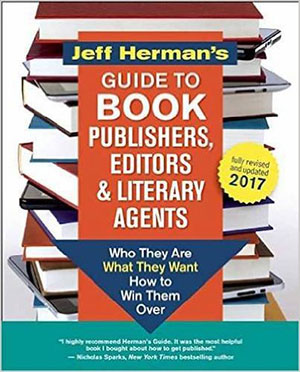
More Meat Than I Thought
I have often turned to Jeff Herman’s continuing updated guide to book publishers, editors and literary agents. When I first started writing, years ago, I turned to it in seeking an agent. His book lists hundreds of agents, most of who, as expected, live in New York City.
When I started Neworld Review in 2007, Herman’s book was really a Godsend, because I was able to used it to contact publishers, editors and publicity departments at “a numerically tiny oligarchy of multinational, trillion-dollar conglomerates,” independent presses and university presses. This provided me with a ready stream of book and publishing information that allowed me to stay up to date with the latest trends in the publishing industry.
What was also invaluable was Herman’s advice to new writers about how to avoid some of the scams that permeate the industry, as predators exploit would-be authors, authors that would do almost anything to get published.
“Bogus agents make money in countless ways,” he writes, “other than by doing what real agents do. Bogus agents tend not to ever sell works to traditional publishers and don’t operate on the basic of earning commissions. Instead, they may offer amazing promises and an itemized menu of non-agent services, like simply reading your works for a fee… If someone says she will be your agent and if you pay her money, then she isn’t a bona....Read More

REVIEWING
IT’S NEVER TOO LATE TO BEGIN AGAIN
By Julia Cameron
Reviewed by Emily Rosen, M.A., M.S.
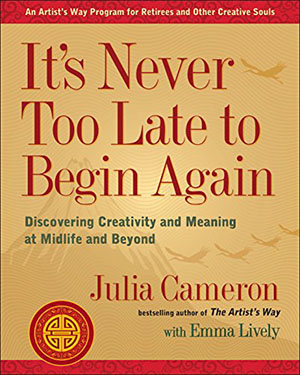
It’s almost twenty-five years later, and the JULIA CAMERON industry continues to flourish. With a title like this: “It’s Never Too Late To Begin Again,” its appeal reaches out to people way over 30 who figure they could “do” life better.
To justify my use of the word “industry,”: Cameron has created workbooks, prayer books, date books, meditations, movies, musicals, memoirs, fiction, poetry, plays, etc, so numerous as to discourage listing – making Joyce Carol Oates look like a slacker.
If you don’t know Julia Cameron, be sure not to admit it in circles dedicated to self improvement, creativity, artistic expression, dogged self-discipline, the writing life and spirituality. Her original treatise, “The Artist’s Way,” published in 1992 is the landmark bible for subjects dealing with all of the above. Those for whom its content nurtured major life improvement, remain in worshipful gratitude to this woman, born in 1948 and briefly (1976-1977) married to Martin Scorscese.
If you’ve come this far, it’s only fair that I report on her latest, the subtitle of which is “Discovering Creativity and Meaning at Midlife and Beyond.” a rehash with additives of the original ARTIST’S WAY – successfully geared to an older population of enthusiastic wannabees. (folks who “wanna” have the most meaningful, creative, overall satisfying life possible)
For readers not yet familiar with Cameron’s signature technique, her “Morning Pages,” assignment has been assiduously followed by her acolytes since the concept was first brought to light in THE ARTIST’S WAY. Her followers joyfully (or sometimes “not-so” ) put a writing instrument (definitely NOT a computer) to three 8 ½ by 11 “pages” daily as part of their awakening routine following the toothbrushing, face washing, and whatever other dreary-eyed ablutions in which they are engaged. This is the “Pitcher’s Pen” of warm-up writing and is rightfully hailed by its many fans as freeing, inspiring, revealing, and effective as a valuable kind of introspective connection with self. The words need not make sense—they can be jots, notes, fragments, run-on sentences, stories, feelings, thoughts, a grammarian’s nightmare – just as long as the writing experience is representative of the writer at that moment in time.....Read More

REVIEWING
The Hike
By Drew Magary
Reviewed by Michael Carey
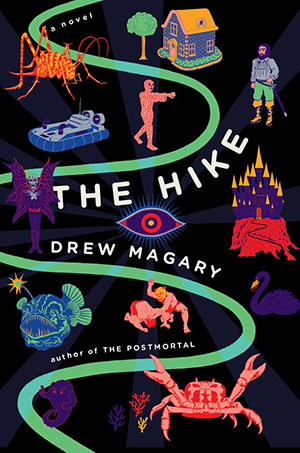
Drew Magary’s second novel, The Hike, is The Odyssey on hallucinogens. Realistically, The Odyssey is The Odyssey on hallucinogens, but Magary’s tale takes one man’s struggle to return to his family to new places in the imagination.
Ben arrives early for a business meeting at a hotel in the Poconos. With time to spare, he goes for a little hike, but the path has other plans for him. Ben finds himself in a world outside of time and space, a world that threatens his life and challenges every fiber of his resolve. In this strange new realm, Ben will face the past that was and the past that could have been, all the while struggling to avoid....Read More

Neworld Review
Vol. 9 No 67 - 2016
Editor-in-Chief
/Publisher
Fred Beauford
Online Managing Editor
Richard D. O'Brien
Associate Editor
Jane M. McCabe
Fiction Editor
Jan Alexander
Poetry Editor
Sally Cobau
Senior Editors
Molly Moynahan
Herb Boyd
M.J. Moore
Janet Garber
Director of Photography
Kara Fox
President
Alexis Beauford
Contributing Writers
Michael Carey
Robert Fleming
Kara Fox: Portfolio
Emily Rosen
Jane Smiley
Michael Moreau
Robert Fleming
Michael J. Moore
The Neworld Review is a publication of Fred Beauford, 3183 Wilshire Blvd,
Suite 196,
Los Angeles, CA. 90010.
Material in this publication may not be reproduced in whole or in part without permission. Opinions expressed by contributors do not necessarily reflect the views of the publishers.
Manuscripts should be accompanied by a self-stamped envelope. Online submissions are accepted at [email protected].
Neworld Review cannot be held responsible for unsolicited photographs or manuscripts.
All correspondence to:
Fred Beauford
Editor-in Chief/Publisher
Neworld Review
3183 Wilshire Blvd,
Suite 196,
Los Angeles, CA. 90010
Archived Issues





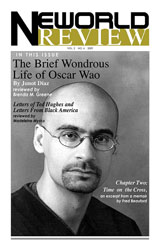
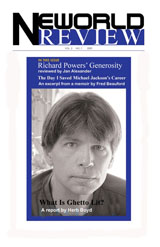

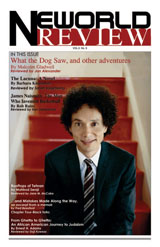
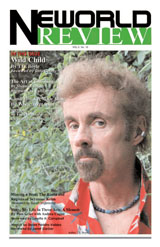
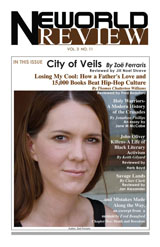
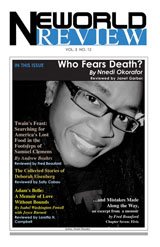
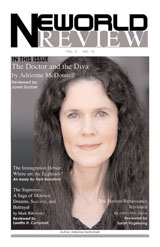
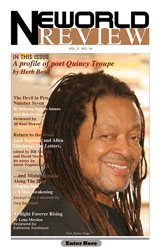
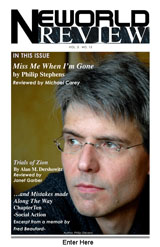
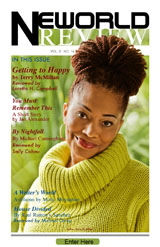
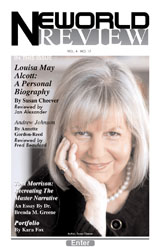
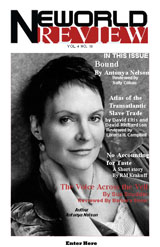
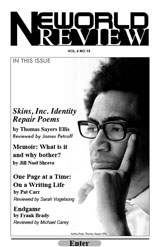
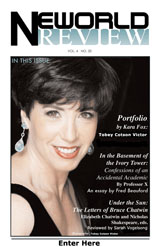
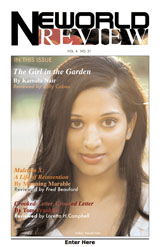
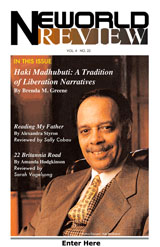
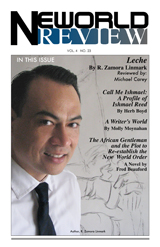
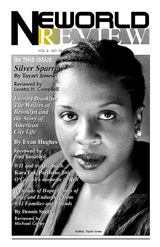
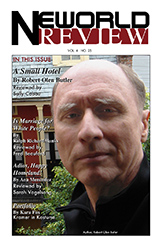
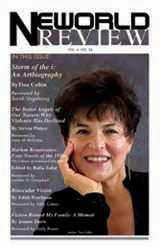
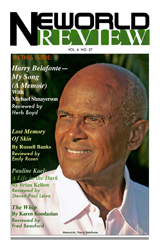
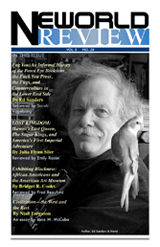
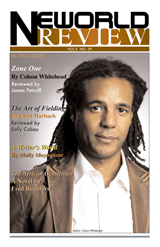
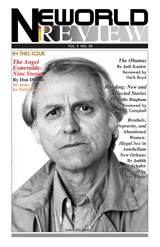
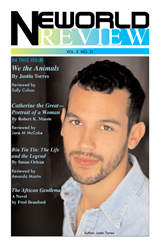
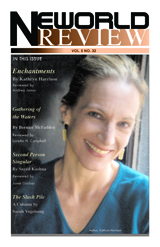
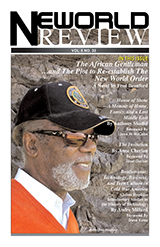
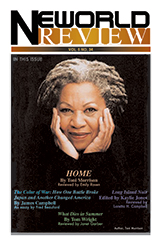
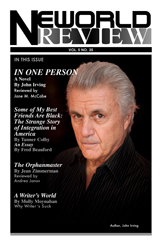
Digital favorites
- Non Gamstop Casinos UK
- Casinos Not On Gamstop
- Mejores Casinos Online
- Siti Casino Non Aams
- Casinos Not On Gamstop
- Gambling Sites Not On Gamstop
- Non Gamstop Casinos
- Online Casinos UK
- Best Non Gamstop Casinos
- Casino En Ligne
- UK Casinos Not On Gamstop
- Best Casino Sites Not On Gamstop 2025
- Best Non Gamstop Casinos
- Mejores Casas Apuestas Online
- Siti Casino Online Non Aams
- Top UK Casino Sites
- Meilleur Casino En Ligne Fiable
- Meilleur Casino En Ligne
- Non Gamstop Casino
- Casinos Not On Gamstop
- Slots Not On Gamstop
- Non Gamstop Casino
- Casinos Not On Gamstop
- Siti Casino Online Non Aams
- Lista Casino Online Non Aams
- Siti Casino
- Meilleur Casino En Ligne En Belgique
- Site De Paris Sportif Bonus
- Crypto Bookmaker
- українські онлайн казіно
- Casino Jeux En Ligne
- Casino Online Bonus Senza Documenti
- Casino En Ligne
- Siti Non Aams Bonus Senza Deposito
- Casino En Ligne Francais
- Casino En Ligne France Fiable
- Meilleur Casino En Ligne 2026
- Casino Online Italia
- オンカジ
